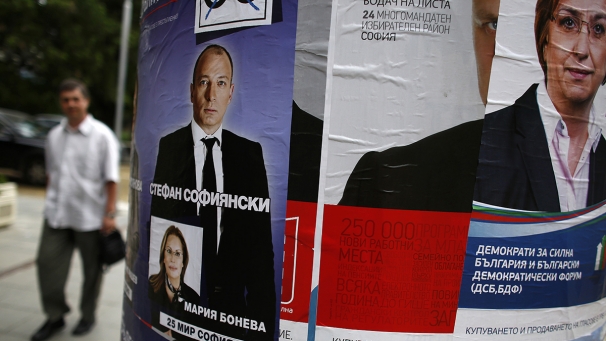Bulgarians began voting Sunday in a tight and tense snap general election marred by accusations of fraud and expected to result in political stalemate and fresh protests in the EU’s poorest member.
 Bulgarians began voting Sunday in a tight and tense snap general election marred by accusations of fraud and expected to result in political stalemate and fresh protests in the EU's poorest member.
Bulgarians began voting Sunday in a tight and tense snap general election marred by accusations of fraud and expected to result in political stalemate and fresh protests in the EU's poorest member.
Former bodyguard and ex-premier Boyko Borisov's conservative GERB party is expected to win the most votes, even though the biggest demonstrations in 16 years forced his government to resign only three months ago.
But pre-vote opinion polls give GERB just 29-35 percent of the vote, and the last-minute opinion polls showed the socialist BSP party snapping at GERB's heels on 25-32 percent, with some surveys putting them neck-and-neck and even suggesting the BSP might pull off a surprise, if slim, victory.
Either way, this will leave either party the tough task of fishing for coalition partners in a severely fragmented parliament that might include up to five other parties.
The ultra-nationalist Ataka, which voted with Borisov's minority government but which has now turned against him, seems set to enter parliament again, with polls giving it between six and nine percent.
The only other party certain to clear the four-percent threshold to enter parliament is the Socialists' former coalition partner, the liberal Turkish minority MRF party, credited with between eight and 15 percent of the popular vote.
The expected turnout for the proportional representation vote to pick 240 lawmakers for a four-year mandate in the single-chamber parliament is about 50 percent.